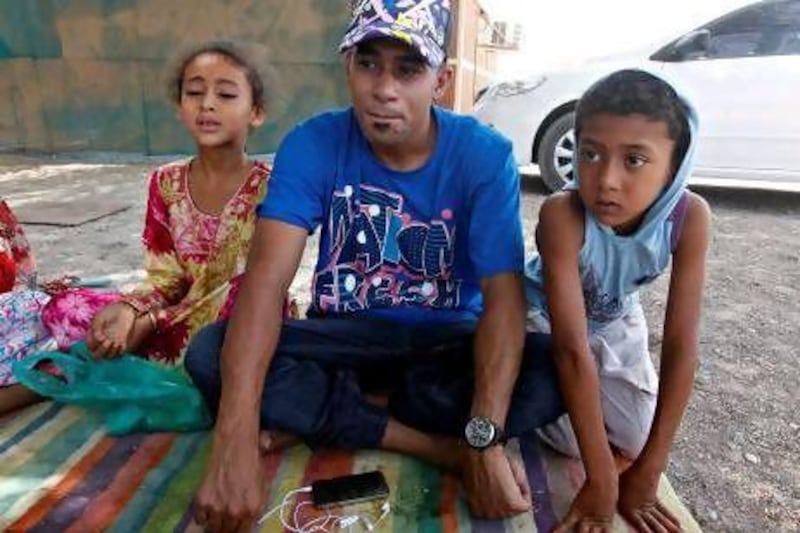RAS AL KHAIMAH // The collection of old concrete houses and faded UAE flags was once known as "the Baluchi village" - a name that underscored its stateless residents as outsiders.
Their ancestors came from the coast of Iran and Pakistan at a time when the sea was a highway that connected regions.
Faded UAE flags flutter above houses, where residents greet strangers by stating that they "belong to the UAE".
But last month, the greeting changed. "There are no bidoon here," said Hooriya Al Baluchi, 60, who came to Ras Al Khaimah by ship at the age of 15.
The phrase is repeated as an introduction by others, again and again.
It is a new reality that contains her hopes for the future. The village residents recently took Comoros Islands passports, in what could soon be the first step to Emirati citizenship.
Village talk is optimistic since the announcement that stateless applications for full citizenship will now be considered by the Children of Emirati Mothers Committee, which has set up a transparent process for reviewing their applications.
"We grew up here, this is our country," said Jalal Mohamad, 26. "We are from here, my mother was born here. From the first time we opened our eyes this is what we saw. We thank the Government, they give us everything."
Mr Mohamad was stateless until June, when he received a Comoros Islands passport, legalising his status in the UAE.
"Before when they suggested we take this [Comoros] passport, we said 'no', because we belong in the UAE. Now we say 'yes'. Citizens with this passport can work for the Government."
Mr Mohamad speaks fluent Arabic in Emirati dialect, and welcomes guests with the customary Emirati cup of coffee.
He said he has always been treated as a brother and a citizen.
"Everywhere we go with people here they never treat us like we are from outside. Never ever," he said.
Mr Mohamad lost his job in March after a car crash. He hopes his new passport will help him find employment.
His dream is to attend university, which he said was impossible as a stateless person. But, following a decision by the committee to grant all applicants access to health care and education, it may now be possible.
Mr Mohamad said his father arrived in the UAE in the 1950s from south Iran, while his mother, Kathu, was born in the UAE. "I lost my whole future because I cannot continue my studies," he said.
"I'm looking to do something for my country. I've never stopped since I finished school, never stopped working, trying hard to get my future back, even though I am bidoon."
Mr Mohamad and his family applied for citizenship in 2008. They have sat through numerous interviews with ministry officials, who suggested they take the Comoros passport.
In the past year, he said, it had become increasingly difficult for stateless people to get driving licences and health cards, to enrol their children in schools and to find jobs.
"Expired driving licences, expired health cards, we cannot do anything," he said. "So they gave it to us like it was a choice, so we could renew everything, our schools."
"And our lives," said his friend, Abdulla Bahader, 41. "Our lives are renewed."






